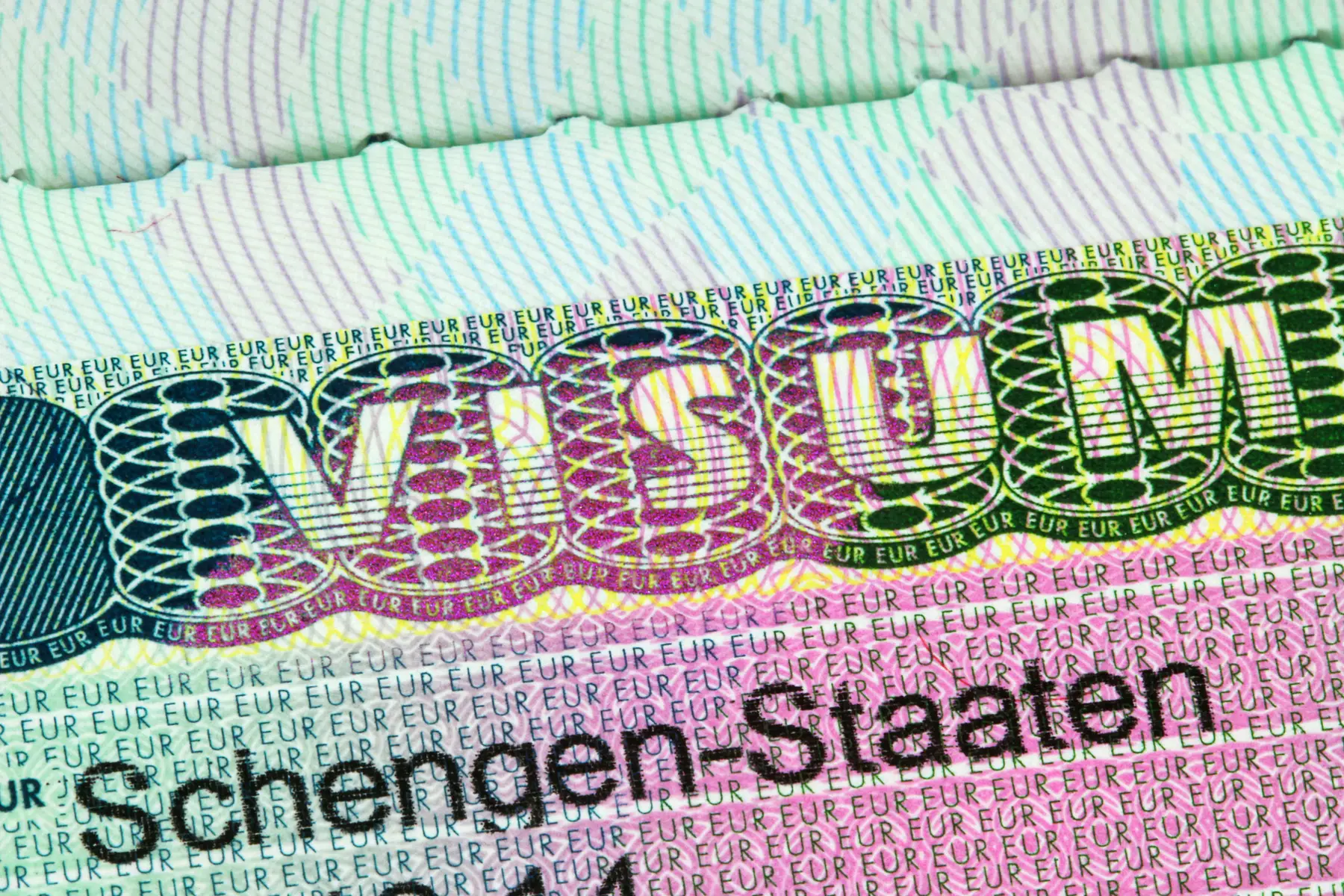Austria levies tax on all income above a €13,308 threshold from residents and non-residents living and working in the country. The government divides earnings into brackets and calculates the tax rates progressively from 0 to 55%.
You can learn more about how to file your income tax return in Austria by exploring the following topics:
- Income tax in Austria: overview and latest developments
- Tax rates: how much tax will I pay in Austria in 2025?
- Who pays income tax in Austria?
- Who is exempt from Austrian income tax?
- How do I file my income tax return in Austria?
- Income tax refunds
- What happens if I don’t pay my income tax on time?
- Income tax advice in Austria
- Useful resources
Income tax in Austria: overview and latest developments
The Austrian government levies tax on residents’ salaries, wages, and other forms of remuneration, differentiating between income and wage tax. Salaried employees and pensioners pay wage tax (Lohnsteuer), while self-employed workers pay income tax (Einkommensteuer). The tax brackets are the same but differ in the collection method.

If you earn a salary or wage, your employer will withhold a certain tax percentage from your monthly income based on the tax brackets and pay the Austrian tax authority, Bundesministerium für Finanzen (BMF – Ministry of Finance). Whether you pay income or wage tax, you will most likely have to file a return at the end of the tax year. The BMF will assess your completed income tax return to determine whether you owe money or receive a refund.
The Austrian Income Tax Act (Einkommensteuergesetz) stipulates seven types of earnings that are liable for taxation and splits these into two groups: business or profit income and non-business or from receipts over expenditure income.
- Business income
- Self-employment
- Agriculture and forestry
- Commercial operation
- Non-business income
- Employment
- Capital assets
- Rentals and leasing
- Other income not specified (e.g., savings, interests, and dividends)
Austria’s income tax system is progressive, meaning that the rate of taxation (up to 55% of taxable income) increases the more you earn.
The Austrian state uses tax revenue to subsidize various public services and infrastructures to ensure high standards of living for its residents, for example:
- Public services: Healthcare and education
- Infrastructure: Roads, public transport, energy and water supply, and digital connectivity
- Social services and benefits: Child and family benefits, unemployment insurance, housing assistance, disability support, and pensions
- Public safety: Police and fire services, and courts
- Environmental protection: Conservation of natural resources and green spaces
Latest news about income taxes in Austria in 2025
Taxpayers in Austria benefit from slightly higher income tax thresholds in 2025, with tax payable on earnings above €13,308.
Additionally, several tax deductions have been increased. The new rates for 2025 are as follows:
- Single-earner deduction (Alleinverdienerabsetzbetrag): €601 (up from €572)
- Single-parent deduction (Alleinerzieherabsetzbetrag): €601 (up from €572), plus an additional €212 for the second child and €268 for subsequent children.
- Pensioner deduction (Pensionistenabsetzbetrag): €1,002 (up from €954) for the standard deduction, or €1,476 (up from €1,406) for the higher amount.
- Transport deduction (Verkehrsabsetzbetrag): €487 (up from €463).
Tax rates: how much tax will I pay in Austria in 2025?
You can easily determine your income tax by using the Austrian Tax iCalculator.
There is no difference between the tax rates and income thresholds for residents and non-residents in Austria. You can see the tax brackets for 2025 for employees below.
However, tax rates differ slightly for freelancers (Neue Selbständige), who typically pay about 25%. This applies if your income surpasses the tax-free threshold of €13,308. If your earnings exceed €30,000, you must also pay value-added tax (VAT).
2025 tax year
Income tax rates in Austria are calculated according to your earnings after deductions and fall in the following brackets:
| Taxable income | Tax rate |
| Up to €13,308 | 0% |
| €13,309–21,617 | 20% |
| €21,618–35,836 | 30% |
| €35,837–69,166 | 40% |
| €69,167–103,072 | 48% |
| €103,073–1,000,000 | 50% |
| €1,000,001 and above | 55% |
2024 tax year
| Taxable income | Tax rate |
| Up to €12,465 | 0% |
| €12,466–20,397 | 20% |
| €20,398–34,192 | 30% |
| €34,193–66,178 | 40% |
| €66,179–99,266 | 48% |
| €99,267–1,000,000 | 50% |
| €1,000,0001 and above | 55% |
Who pays income tax in Austria?
Who needs to file an income tax return?
The government distinguishes between limited and unlimited tax liability. You have unlimited tax liability if Austria is your primary country of residence and you receive an income:
- As a resident
- As a cross-border employee
- From a foreign employer who is not obligated to deduct wage tax in Austria
- From a foreign diplomatic mission or an international organization
- From a foreign pension

To clarify, as a resident, if you are self-employed or receive income from multiple sources, you need to file an income tax return at the end of the tax year. However, if you only receive one employed income, you likely do not need to file a tax return, as your employer will deduct a wage tax from your monthly salary.
You must also file an income tax return if you have limited tax liability and receive foreign income from an entity that does not deduct tax (double taxation agreement), while Austria can levy wage tax.
Of course, you can voluntarily file an income tax return (i.e., employee tax assessment) to determine whether you are due a refund from withholding or wage taxes. For example, taxpayers who have limited tax liability and have earned an income in Austria:
- From an employer who has deducted wage tax
- From a domestic pension
- As a writer, lecturer, artist, architect, athlete, or performer in an entertainment show, where an amount of 20% or 25% withholding tax was deducted
Austrian income tax for foreigners
Non-residents are only subject to income tax on Austrian-source remuneration at the national tax rates for the assessment year. In contrast, residents must report and pay taxes on all their earnings, no matter where they earn income.
Double-taxation agreements
Some internationals may benefit from the double taxation agreements or conventions (Doppelbesteuerungsabkommen) between Austria and other countries across the EU and worldwide. These agreements mean you will not pay Austrian income tax on any already taxed remuneration in your home country. However, if your situation determines that Austria can levy tax on your income, you must indicate this on forms L1i and L17.
EU and EEA citizens from countries with a double-taxation agreement with Austria can choose unlimited tax liability if they earn most of their income (90% or more) in Austria or if their foreign income is below €13,308, despite not residing in the country. They can also claim certain tax deductions like Family Bonus Plus.
Moreover, cross-border workers living in Austria but working in Germany, Italy, or Liechtenstein are typically taxed in Austria. Foreign employees are considered fully tax-liable from arrival, provided they have a work or employment contract lasting at least six months. However, seasonal workers only need to pay income tax if their stay exceeds half a year.
You can find the most up-to-date list of double taxation treaty partners on the Austrian Ministry of Finance website.
Who is exempt from Austrian income tax?
Some individuals living in Austria may be exempt from paying income tax or filing a return. These include:
- Those earning less than the annual tax threshold of €13,308
- Students whose stipends for writing a master’s or PhD thesis do not exceed the Austrian Study Grant or whose earnings from internships/part-time jobs are below the tax threshold
- Some pensions, depending on the source and amount
- Foreign diplomats and international organization employees
- Certain tax-free savings accounts and investment income
- Non-residents whose Austrian income is below the tax threshold
How do I file my income tax return in Austria?
The deadlines for submitting your income tax in Austria depend on how you file it. If you submit a paper return, it must be in by 30 April 2025.
However, if you file electronically via the public FinanzOnline platform, you have until 30 June 2025.
How to register for tax in Austria
You can digitally sign up, request a tax number, file your income tax return, and pay the amount due via FinanzOnline, the government’s tax office portal.

Alternatively, you can register for a tax number and submit your return in person at your local tax office. Of course, you need to book an appointment in advance, which you can do by calling 050 233 700 or using the online booking form.
Which forms do I need to fill out?
If you are legally obliged to complete an income tax return in Austria, you need to use the following forms:
These forms are all in German and include the following sections:
- Personal and contact details (including biometrics and marital status)
- Details about tax credits, exemptions, and deductions
- Childcare allowance, benefits, and pension contributions
- Detailed description of all sources of income – local and international
- Investments, savings, capital gains, and losses
- Travel allowance
- Business expenses (primarily if self-employed)
- Extraordinary burdens
If your income is fully taxable in Austria (e.g., monthly wage tax on a salary), your employer must forward the Wage Certificate (Form L 17) to the BMF. It can be done via ELDA, Austria’s system for electronic data exchange with social security institutions.
Supplementary forms
Depending on the source of taxable earnings you declare, you may also need to attach these forms with extra information. These supplementary tax forms are only available in German, but you can find them online via the BMF’s digital portal.
| Form | Source of income |
| E 1b | Rental income |
| E 1c | Sole traders with lump sum income from agriculture and forestry |
| E 1kv | Capital assets income |
| E6 | Income of partnerships (Personengesellschaften) and partnership associations (Personengemeinschaften) |
| E11 | For members of partnerships (Personengesellschaften) |
| L 1i | Declare foreign income – if you receive it 12 times per tax year – under Code 359 (e.g., overseas pensions). If you receive a foreign income more often, you also need to submit L 17 |
L 1k | Income from Family Bonus Plus, maintenance credit, exceptional costs for children, or corrective taxation of the employer’s childcare subsidy |
| L 1k-bF | Family Bonus Plus in specific cases |
| L1ab | Extraordinary burdens |
| L 1d | For special consideration of special expenses |
Deductibles and tax relief
You can claim certain deductions against your taxable income in Austria, including:
- Sickness, life, and accident insurance premiums
- Extraordinary burdens (e.g., illness or disaster costs not covered by insurance)
- Voluntary employer pension contributions
- Building a new house or renovating an existing space expenses
- Family Bonus Plus tax credit that combines the childcare deduction and the child tax-free amounts
- Single earner/parent’s tax credit
- Professional expenses
- Education costs for retraining or career development
- Hospital charges (not covered by health insurance)
- Charitable contributions to certain institutions
- Church tax
- Austrian tax adviser fees
- A tax break for cars with a CO2 value of up to 95g/km and purely electric vehicles (EVs)
- Travel or commuter allowance
As a low-income earner, you may also be eligible to claim ‘negative tax’ or refunds on your social security contributions.
Self-employed income tax allowances in Austria
If you are self-employed, you can offset several business-related expenses from your income tax in Austria, for example:
- Transportation/travel
- Administration costs and office supplies
- Communications
- Career development expenses
- Professional body memberships
- Liability insurance
- Home office
After logging in to your FinanzOnline account, you select Eingaben (tax entries) and Erklärungen (tax declarations).
How do I pay my Austrian income tax?
Most taxpayers also use the FinanzOnline platform to pay their income tax electronically.
However, if you can’t access it, you can also use these payment methods:
- Direct bank transfer
- Debit orders
- At a bank with a deposit/payment slip
Remember to include your tax identification number and specific payment codes to ensure the BMF allocates the money to your tax account.
Income tax refunds
If the tax assessment (Bescheid) reveals that you have overpaid and are due a refund, the BMF will typically credit your registered bank account within a few weeks.

However, if you think the tax calculation needs to be corrected and are due a refund but have yet to receive one, you can contact the tax office to discuss the issue. If this is not resolved, you can submit an official appeal.
What happens if I don’t pay my income tax on time?
Filing your taxes on time is essential to avoid penalties. In Austria, if you submit your tax return late without a justifiable reason, a surcharge of up to 10% of the prescribed tax amount can be applied.
Making negligent errors on your income tax return in Austria could lead to an audit, which might result in adjustments to your tax liability. The specifics, such as fines or additional taxes due, depend on the nature and extent of the mistakes.
If you cannot fully settle the amount due, you can request deferred payment or installments. The BMF will charge interest rates of 3.88% on debt exceeding €750.
Appeal a tax assessment decision
You can appeal (Berufung) a tax office decision in writing within 30 days of the assessment. It is easiest to file the appeal digitally via the FinanzOnline portal. You must also request a collection suspension if you plan to avoid paying the amount before resolving the dispute.
If your appeal is denied, you will pay 5.88% interest for the time of suspension.
Income tax advice in Austria
Filing your income tax return in Austria can be complicated, especially if you are self-employed, have multiple income sources, or want to claim exemptions, tax credits, or deductions.
Therefore, it is a good idea to seek professional tax advice. You can start by browsing our directory to find financial experts in Austria or search for an accountant on the Austrian Chamber of Tax Advisors and Public Accountants.
Ensure that the tax advisor you choose belongs to a professional body, such as:
- Austrian Chamber of Tax Advisors and Public Accountants (Kammer der Steuerberater und Wirtschaftsprüfer – KSW)
- Institute of Austrian Certified Public Accountants (Institut Österreichischer Wirtschaftsprüfer – IWP)
Useful resources
- Budget 2024 – official national budgetary forecast for 2024 to 2027
- FinanzOnline – digitally file your income tax return
- The Austrian Tax Treaty Network – official information on the double tax conventions between Austria and other countries
- Bundesministerium Finanzen – find copies of all the digital tax forms on the Ministry of Finance’s search portal
- PWC – 2025 income tax rates and withholding tax examples






